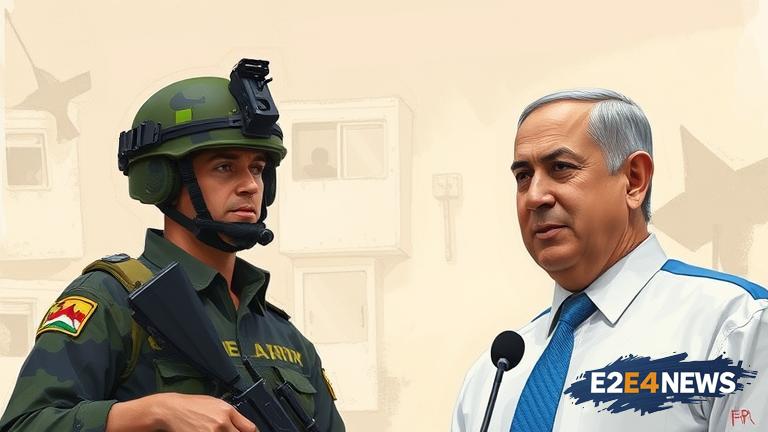The Israeli Defense Forces (IDF) and Prime Minister Benjamin Netanyahu have reiterated their commitment to avoiding the intentional targeting of civilians, amidst growing concerns over the escalating violence in the region. This stance is in line with international humanitarian law, which emphasizes the protection of non-combatants in conflict zones. The IDF has been engaged in various operations aimed at reducing threats from neighboring areas, with a focus on precision and minimizing harm to civilians. Netanyahu, in his address, underscored the moral and legal imperative of distinguishing between military targets and civilian populations. He also highlighted the challenges posed by terrorist organizations that often embed themselves within civilian areas, thus complicating military operations. Despite these challenges, the IDF has implemented stringent measures to ensure that its actions are proportionate and in accordance with the principles of distinction and precaution. The international community has been watching the situation closely, with many nations and organizations calling for restraint and a return to diplomatic efforts to resolve the underlying issues. The United Nations has been particularly vocal, emphasizing the need to protect civilians and to find a peaceful resolution to the conflict. Human rights organizations have also been critical of any actions that result in civilian casualties, calling for investigations into alleged violations of international law. The situation on the ground remains tense, with periodic outbreaks of violence and a pervasive sense of insecurity among the civilian population. Efforts to de-escalate the situation and to promote dialogue between the parties involved have been ongoing, though progress has been slow. The economic impact of the conflict has also been significant, with trade and commerce severely affected. In response to the humanitarian needs arising from the conflict, several countries and international organizations have pledged aid, including food, shelter, and medical supplies. The role of social media in the conflict has been notable, with many using these platforms to disseminate information, some of which has been misleading or designed to inflame tensions. Fact-checking initiatives and media literacy programs have been suggested as ways to combat the spread of misinformation. Meanwhile, diplomatic efforts continue, with various mediators attempting to broker a peace agreement that addresses the core issues driving the conflict. The path forward is fraught with challenges, but there is a widespread recognition of the need for a negotiated settlement that respects the rights and dignity of all parties involved. In the face of these complexities, the IDF’s and Netanyahu’s statements on avoiding civilian targets are seen as crucial steps towards reducing the humanitarian impact of the conflict. However, critics argue that more needs to be done to prevent civilian casualties and to hold accountable those responsible for violations of international law. As the situation evolves, the international community remains vigilant, calling for an end to hostilities and a return to the negotiating table. The protection of civilians must remain a paramount concern for all parties involved, as the pursuit of peace and stability in the region continues. Ultimately, a lasting resolution will require a comprehensive approach that addresses the political, economic, and social dimensions of the conflict, with a strong emphasis on human rights and the rule of law.
